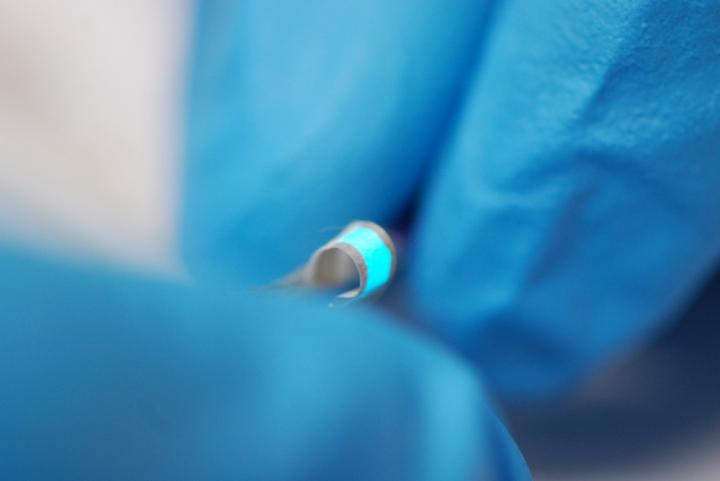
So-called wearable electronics are currently made by essentially gluing devices to fabrics, which can mean they are too rigid and susceptible to malfunctioning. But the new research - carried out in collaboration with experts from the Universities of Aveiro and Lisbon in Portugal, and CenTexBel in Belgium – integrates electronic devices into the fabric of the material opening up a host of potential applications in every day clothing and healthcare monitoring.
At just one atom thick, graphene is the thinnest substance capable of conducting electricity. It is very flexible and is one of the strongest known materials. The race has been on for scientists and engineers to adapt graphene for the use in wearable electronic devices in recent years.
This new research - published in the scientific journal Flexible Electronics - used existing polypropylene fibres - typically used in a host of commercial applications in the textile industry - to attach the new, graphene-based electronic fibres to create touch-sensor and light-emitting devices.
The technique means that the fabrics can incorporate truly wearable displays without the need for electrodes, wires of additional materials.
Professor Saverio Russo, co-author and from Exeter University's Physics department, said: "The incorporation of electronic devices on fabrics is something that scientists have tried to produce for a number of years, and is a truly game-changing advancement for modern technology."
Dr Ana Neves, co-author and also from Exeter's Engineering department added: "The key to this new technique is that the textile fibres are flexible, comfortable and light, while being durable enough to cope with the demands of modern life."

Red Bull makes hydrogen fuel cell play with AVL
Many a true word spoken in jest. "<i><b>Surely EVs are the best solution for motor sports</b></i>?" Naturally, two electric motors demonstrably...